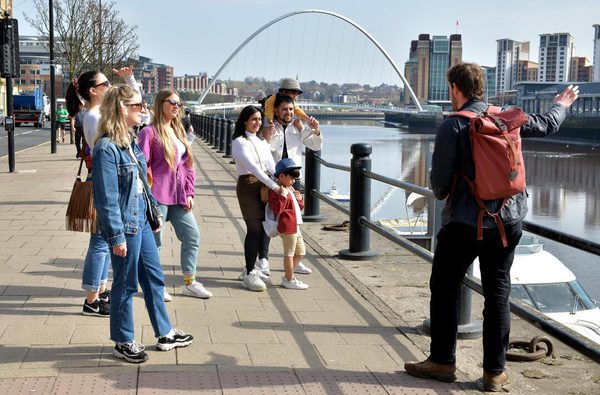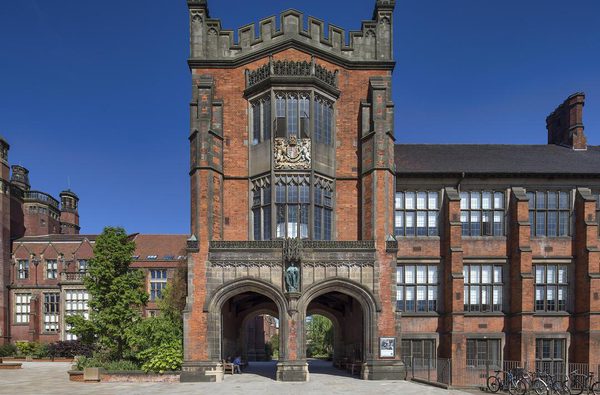Adventure awaits… which path will you choose?
There are so many different routes into the industry to suit your skills, interests and circumstances.
Whether you prefer hands-on experience or academic learning, there’s a path route for you. From college and university courses that will challenge you to think differently to options to earn whilst you learn and direct routes into work – do it your way and thrive in the visitor economy.
Paths to success in the visitor economy
Volunteering
Volunteering is a fantastic way to gain hands-on experience, develop valuable skills, and connect with professionals in the industry.
Whether you want to enhance your CV or feel passionate about making an impact, volunteering is a fantastic option that helps get you noticed. It's a great way to give back to your community, offers great flexibility and can help you make connections and forge relationships that can help you throughout your career.

Direct to work
If you are eager to start working and earning right away, entry level positions abound in the visitor economy and are accessible to those without formal education or training. You could even start your own business and work for yourself.
Heading directly into the industry gives you an enviable head start and can help you reach your career goals quicker. It’s also a great option if you have that entrepreneurial spark and want to set up your own business (like many visitor economy business owners have done).
There's loads of support available if you're interested in starting a business.

Benefits of direct to work
- There’s no waiting around, you’ll be working and earning straight away and starting your career journey ahead of others who choose a different route.
- Offers an alternative to academic routes which can often incur high tuition fees
- Provides the option to work for yourself and carve your own path.
Things to consider
- Non entry level positions with higher salaries may require evidence of further or higher education.
- Education and formal training can equip you with knowledge and transferable skills you might not gain in the workplace.
- Setting up a business can be risky and volatile – make sure you access the plethora of start-up support available in order to succeed.
Apprenticeships
Apprenticeships are an excellent way to earn whilst you learn, giving you practical, real-world experience, hands-on learning and a wage whilst you study.
They combine on-the-job training with classroom instruction, allowing you to learn directly from experienced professionals in the field whilst gaining a nationally recognised qualification.
The National Careers Service Course Finder can help you locate an apprenticeship.

Benefits of apprenticeships
- There’s no waiting around, you’ll be working and earning straight away whilst learning at the same time.
- Apprenticeships are great for career changers as they allow you to earn whilst you retrain.
- You’ll be able to use your real-world experience to inform your learning, supercharging your career path.
Things to consider
- The apprenticeship wage may be lower than that of a regular employee. If you’re changing careers, you may have to accept a pay cut.
- Doing an apprenticeship doesn’t necessarily guarantee you a job at the end. You’ll still most likely need to apply and interview for a permanent position.
Further education
Many colleges and sixth forms offer specialised vocational programmes in tourism and hospitality, giving you access to inspiring tutors and real experience.
These specialised courses will equip you with foundational knowledge and skills and are a great alternative to traditional A-Levels, especially if you prefer a learning style that’s more hands-on and career focussed.
The National Careers Service Course Finder can help you locate the right further education course for you.

Benefits of further education
- Further education courses allow you to continue your learning in a practical, vocational setting that’s geared up to help you forge a life-long career.
- A lot of colleges allow you to study part-time and offer night classes to help you up skill around your busy life.
- Programmers are designed in collaboration with the industry and tutors and course staff come with heaps of real-world experience and expertise to pass on.
Things to consider
- Whilst most courses are vocational with lots of practical learning, you’ll still need to do the academic side too, including essays, coursework and exams.
- Learning usually takes place during the weekday, which might limit where you can work outside of college – bear this in mind if you need to earn whilst you learn.
Higher education
If you’re looking to delve deeper into the industry and explore the academic side of the visitor economy, Higher Education can offer a direct path into more senior positions and leadership, giving you a more competitive edge.
Typically, 3-year degree programmes can help you gain comprehensive knowledge of the industry, cutting-edge theoretical know-how and leadership skills to boot. You can even go further and complete a post-graduate qualification like a master's to be prepared for specialised positions and high-paying jobs.
You can search and apply for Higher Education courses using UCAS.

Benefits of higher education
- Higher education gives you the critical thinking skills, domain expertise and impressive qualifications to succeed in any role in the visitor economy, especially those that attract a higher salary.
- You’ll have the opportunity to learn from leading academics and lecturers who’ve made significant contributions to the industry
- You’ll learn in state-of-the-art facilities and access world-class resources that will equip you with everything you need to stand out from the crowd.
- Many universities offer excellent wrap-around support, including help to start a business – take advantage of as much of the support on offer as possible.
Things to consider
- Higher education courses carry fees of £9,000+ per year. Scholarships and bursaries are available though so be sure to check with your chosen uni.
- Courses can last in excess of three years, or more if you’re doing a masters on top of your undergrad degree. You’ll need to decide if you can commit to the full length of the course.
- Some colleges offer degree-level qualifications too – be sure to explore all of the options available, not just the obvious ones.

